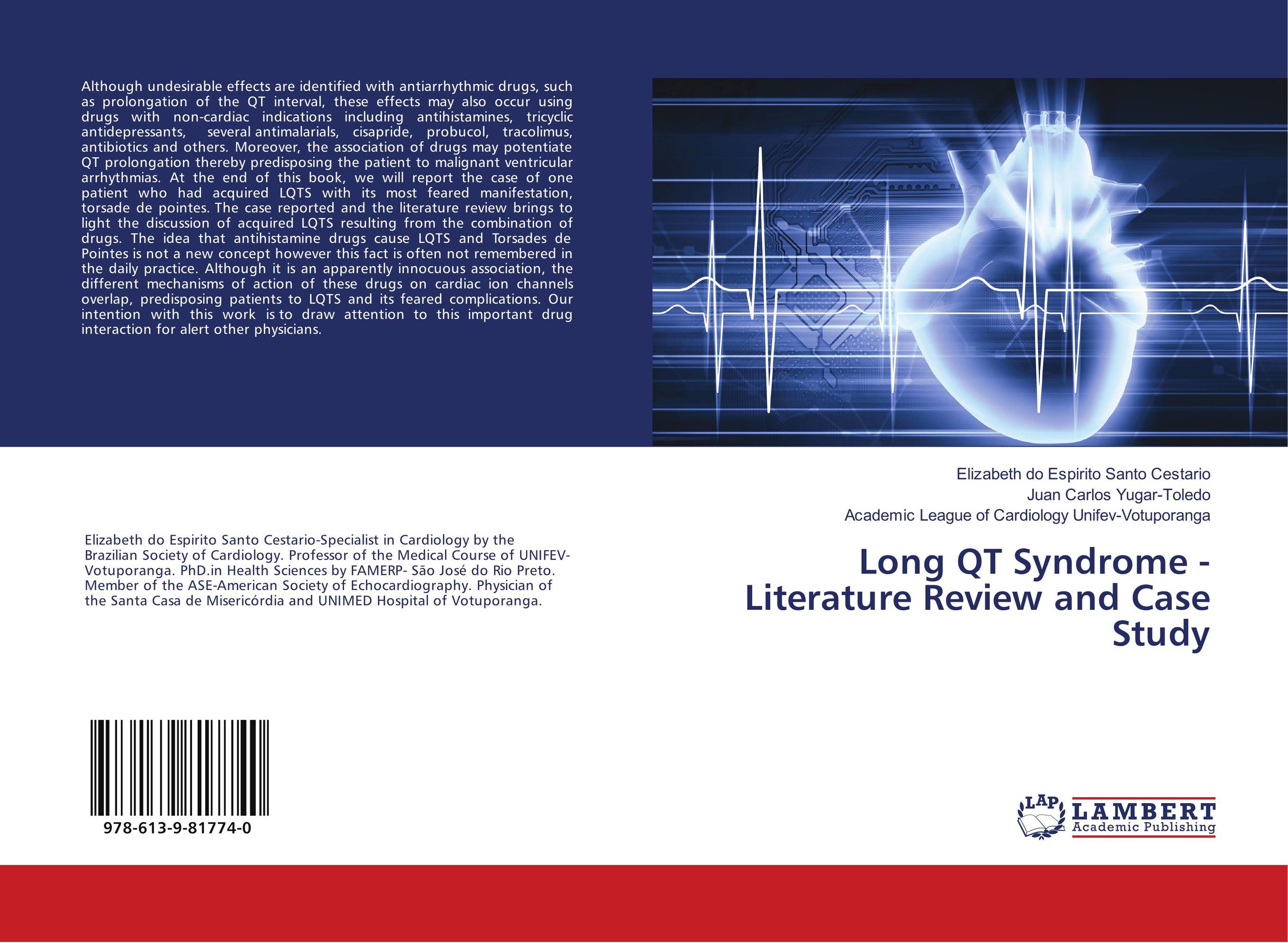| Поиск по каталогу |
|
(строгое соответствие)
|
- Профессиональная
- Научно-популярная
- Художественная
- Публицистика
- Детская
- Искусство
- Хобби, семья, дом
- Спорт
- Путеводители
- Блокноты, тетради, открытки
Long QT Syndrome - Literature Review and Case Study.

В наличии
| Местонахождение: Алматы | Состояние экземпляра: новый |

Бумажная
версия
версия
Автор: Elizabeth do Espirito Santo Cestario,Juan Carlos Yugar-Toledo and Academic League of Cardiology Unifev-Votuporanga
ISBN: 9786139817740
Год издания: 2018
Формат книги: 60×90/16 (145×215 мм)
Количество страниц: 64
Издательство: LAP LAMBERT Academic Publishing
Цена: 15607 тг
Положить в корзину
| Способы доставки в город Алматы * комплектация (срок до отгрузки) не более 2 рабочих дней |
| Самовывоз из города Алматы (пункты самовывоза партнёра CDEK) |
| Курьерская доставка CDEK из города Москва |
| Доставка Почтой России из города Москва |
Аннотация: Although undesirable effects are identified with antiarrhythmic drugs, such as prolongation of the QT interval, these effects may also occur using drugs with non-cardiac indications including antihistamines, tricyclic antidepressants, several antimalarials, cisapride, probucol, tracolimus, antibiotics and others. Moreover, the association of drugs may potentiate QT prolongation thereby predisposing the patient to malignant ventricular arrhythmias. At the end of this book, we will report the case of one patient who had acquired LQTS with its most feared manifestation, torsade de pointes. The case reported and the literature review brings to light the discussion of acquired LQTS resulting from the combination of drugs. The idea that antihistamine drugs cause LQTS and Torsades de Pointes is not a new concept however this fact is often not remembered in the daily practice. Although it is an apparently innocuous association, the different mechanisms of action of these drugs on cardiac ion channels overlap, predisposing patients to LQTS and its feared complications. Our intention with this work is to draw attention to this important drug interaction for alert other physicians.
Ключевые слова: Long QT Syndrome, Torsades de Pointes, Drugs interactions



